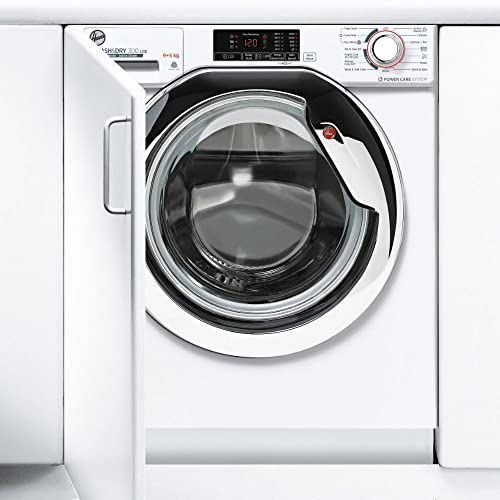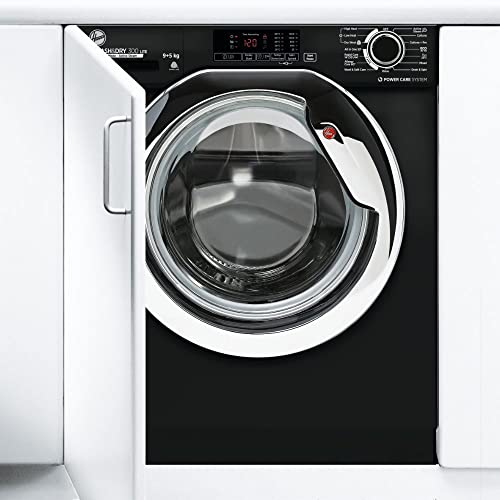The 10 Scariest Things About Fitted Washing Machine
페이지 정보
작성자 Shiela 작성일24-02-15 01:18 조회11회 댓글0건본문
 Fitted Washing Machines
Fitted Washing MachinesFitted washing machines are installed behind doors to cabinets and are designed to fit inside kitchen units. They are narrower than freestanding machines and come with an recessed base that can accommodate the typical kitchen plinth.
They offer time-saving programs that speed up laundry and includes features that any family will appreciate like the speedPerfect sensor which can cut cycle times by up to 70%. This washer has been reduced in the past, so it's worth watching for any further reductions.
Size
When choosing the right washing machine for your home, you should be aware of its size. There are a myriad of options for washing machines, ranging from small and compact models to huge spacious models. The majority of washing machines are around 85 cm high and 60cm wide, but these measurements can vary millimetres.
For the most practical results, it's best to choose a washing machine that has the capacity that meets your household's needs. This will ensure that your laundry gets washed efficiently possible. It's important to keep in mind that a larger drum doesn't mean more washing cycles. Larger machines tend to use a lot more energy and water.
The depth of your washer is an important aspect to take into consideration. Since integrated washer dryer machines washing machines are designed to be positioned under kitchen worktops and hidden behind a cabinet door and their depth could vary by a few centimetres one another. It is important to take a measurement of the depth prior to buying a new washing machine. Add 7cm more to the depth of a stand-alone machine and 3cm to depth of integrated appliances.
If you're not sure the capacity you need we suggest using our size guide as a quick reference to choosing the best washing machine for your needs. The size guide is broken down by the size of the drum and the load to help you find the best model for your home.
It's crucial to make the effort to understand how the various settings and functions of your washing machine can impact its performance. This will help you get the most value from your machine and avoid issues in the future. A higher spin speed, for example could appear to be a good thing, but it could cause more wear and tear, as well as increase the cost of your washing machines in the long run.
Energy efficiency
The energy efficiency of a washing machine is an important factor to consider. The more energy efficient the appliance is and the lower it will cost you to run. You should be aware that washing machines with an efficiency rating that is higher could also have a slower spin rate. This can impact the quality of your wash. Synthetics and cotton can handle a fast spin, but wool and delicate items might require spinning at a slower rate to prevent damage.
Modern washing machines come with many features that affect their energy consumption. Certain models, for instance have sensors that can monitor how much heat and water is required for each load. These models can automatically adjust these parameters according to the load size and the type of appliance you select and save you time and money. Additionally, many appliances come with a built-in smart feature that connects to your home WiFi network and is controlled by your smartphone or voice control. You can begin or stop the washing from any place and monitor its progress.
In recent years, manufacturers have focused on improving the efficiency of their products, reducing both water and electricity consumption. These improvements can significantly impact your household expenses and the environment. Check the energy rating of a new appliance before you purchase it. The ratings are typically listed using the EU eco label which is a straightforward and simple way to evaluate an appliance's energy efficiency. The ratings are based on both the washing performance as well as the spin efficiency of the appliance. They range from A+up to G.
It is crucial to know that an integrated washing machine is typically superior to a standalone one. This is because the cabinet design of integrated washer drying machine models has been specifically designed with specific needs in mind, and converting it to something else could be dangerous and expensive. It is important to know that integrated models tend to be more expensive to install compared to their freestanding counterparts.
Noise
When purchasing a new washing machine it is crucial to think about the noise level. It is ideal to purchase a model that emits less than 70 decibels in a spin cycle. This will reduce the amount the noise produced by your laundry and also help prevent hearing damage in the course of time. However, it is worth noting that even the quietest washers will produce some noise.
Damage to the drum spider is usually the cause of a loud washer. This is the huge three-pronged piece that holds the laundry basket in the drum. If the spider is damaged, it will make the sound of a loud clunking and could cause damage to your clothes. This is one of the most serious issues with washing machines. It can be resolved by replacing the component.
The floor on which a washer is set up can affect the noise level. If the floor is not smooth, it can vibrate and bang against cupboards or walls. If you'd like to cut down on the vibrations and noise generated by your washer, place the mat underneath or make use of adjustable feet.
The addition of insulation around your washing machine's chambers can reduce the noise. This is an easy and inexpensive method of adding padding that can help to reduce the sound of the machine when operating. Make sure that you do not cover any vents or controls.
As we spend more time at home it is important to select appliances that are more quiet than ever before. There are plenty of options to help select the best appliance for your needs. Whether you're looking for a quieter washing machine or an appliance that is smart and will reduce your workload, there's something for everyone. Having the right appliances in your home can make all the difference to your daily routine. From working at home or raising children, it's essential to find an appliance that fits your needs. So, take your time to research and select the most suitable washing machine for you.
Design
The design of your washing machine will impact how it looks and how easy it is for you to use. For example, many models have an auto-dosing feature that calculates the amount detergent to use for each load. This allows you to save money by using less detergent. A timer that informs you when your laundry is done might be another feature you like. This is useful when you're busy or have children who are small around.
Many people attempt to incorporate freestanding washing machines but this isn't always successful and could be risky since the cabinets were designed for different uses. It is also important to ensure that the appliance will fit into the space available and there will be enough room around it to allow for ease of access in case of a service or repair.
When choosing the best fitting washing machine for your home, it is important to take into account the amount of linen and clothes you have. Then consider how many cycles you typically run each week, what sort of laundry you wash (such as dark colors or delicates) and how much power you'd like it to use during the course of a cycle. You'll also need to consider how far you'd like it to be from your drain as well as any gas or hot water connections.
The most suitable washer for your family is a major choice, so it's worth seeking some advice before purchasing one. You can seek advice and reviews from family and friends, or online. You can also go to a showroom to test the washer.
 Even the most well-designed washers can be damaged after a few years. Manufacturers must test their appliances in real-world conditions to ensure the most accurate results. It's difficult to replicate the behavior of consumers when using their appliances at home. The good news is that there are methods to improve the testing process and making sure that washing machines have the performance required over a long period of time.
Even the most well-designed washers can be damaged after a few years. Manufacturers must test their appliances in real-world conditions to ensure the most accurate results. It's difficult to replicate the behavior of consumers when using their appliances at home. The good news is that there are methods to improve the testing process and making sure that washing machines have the performance required over a long period of time.댓글목록
등록된 댓글이 없습니다.
 즐겨찾기 추가하기
즐겨찾기 추가하기





 관유정 커뮤니티
관유정 커뮤니티